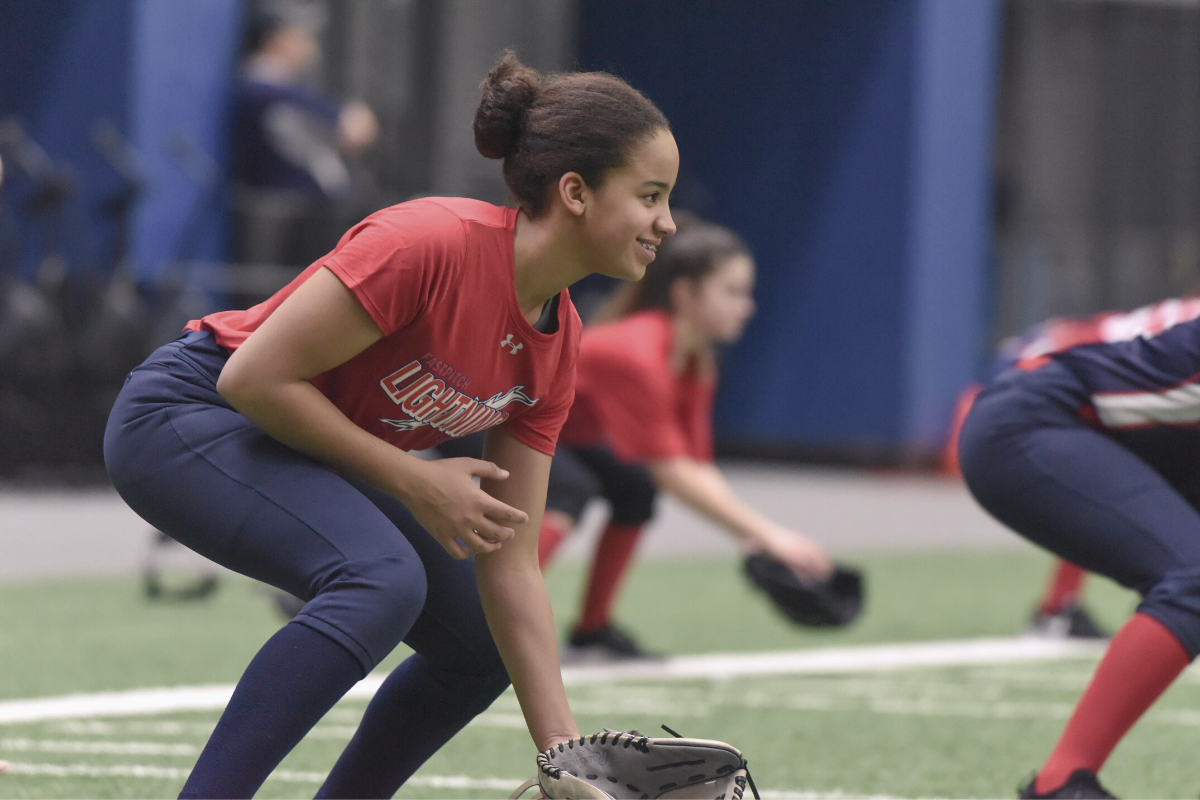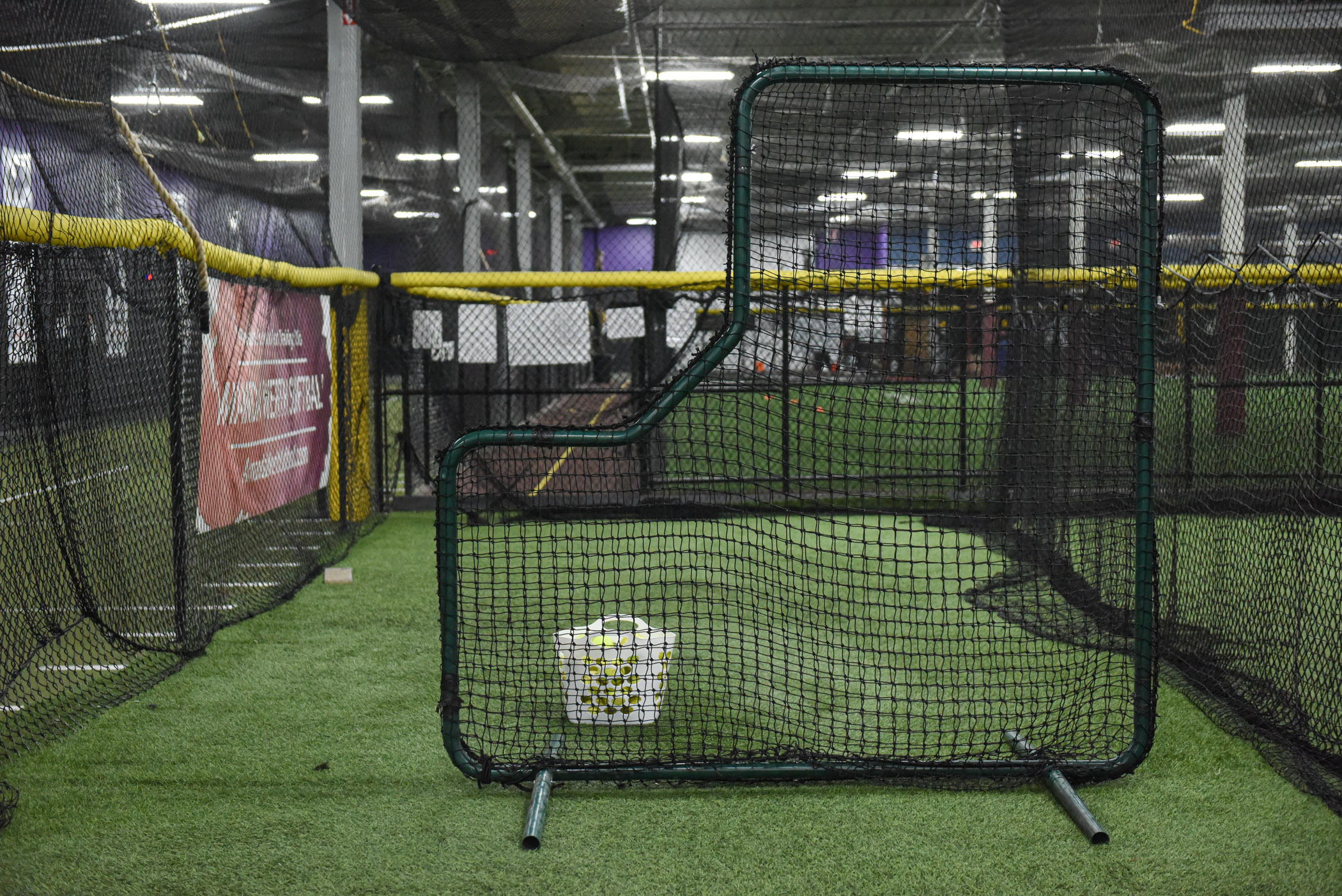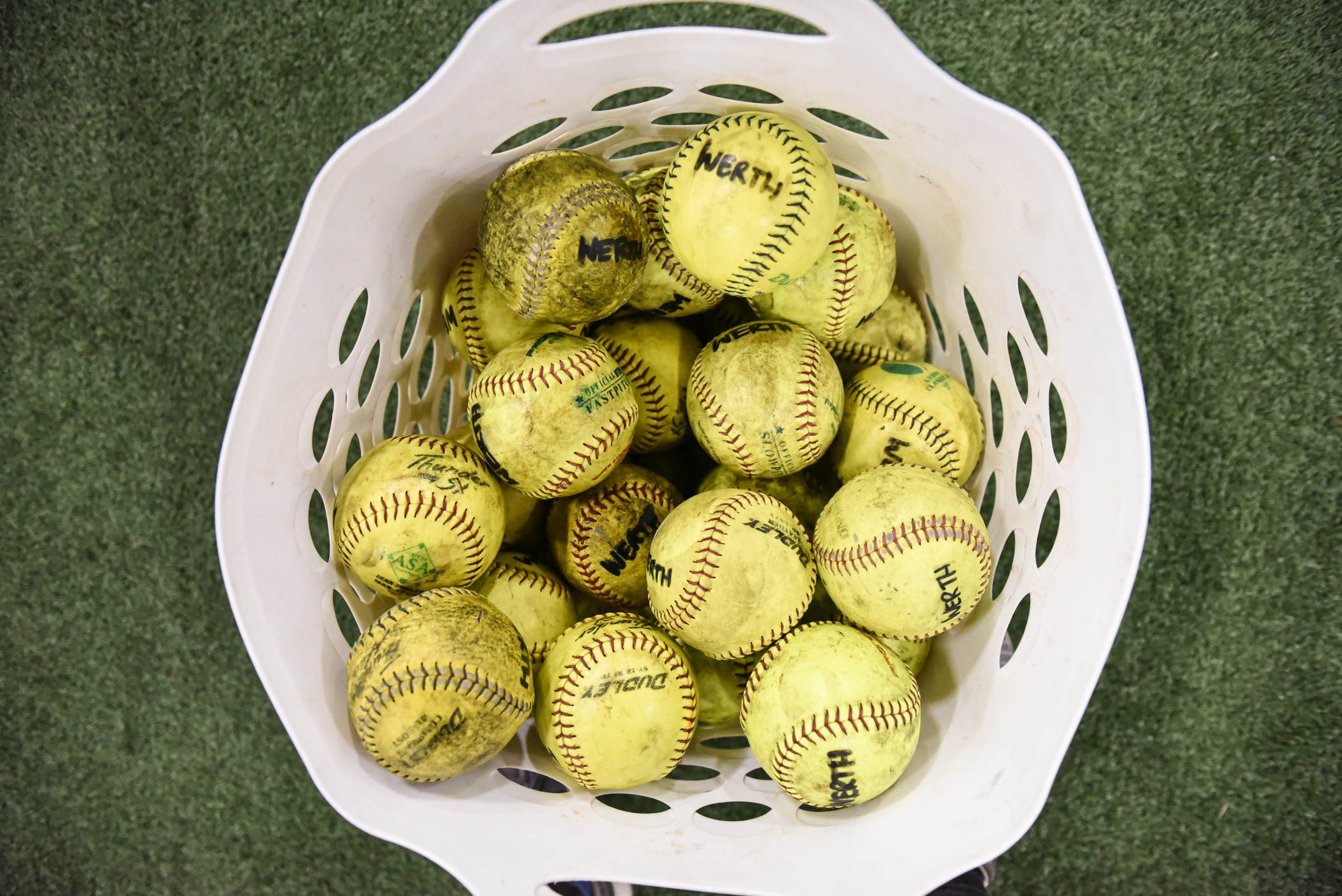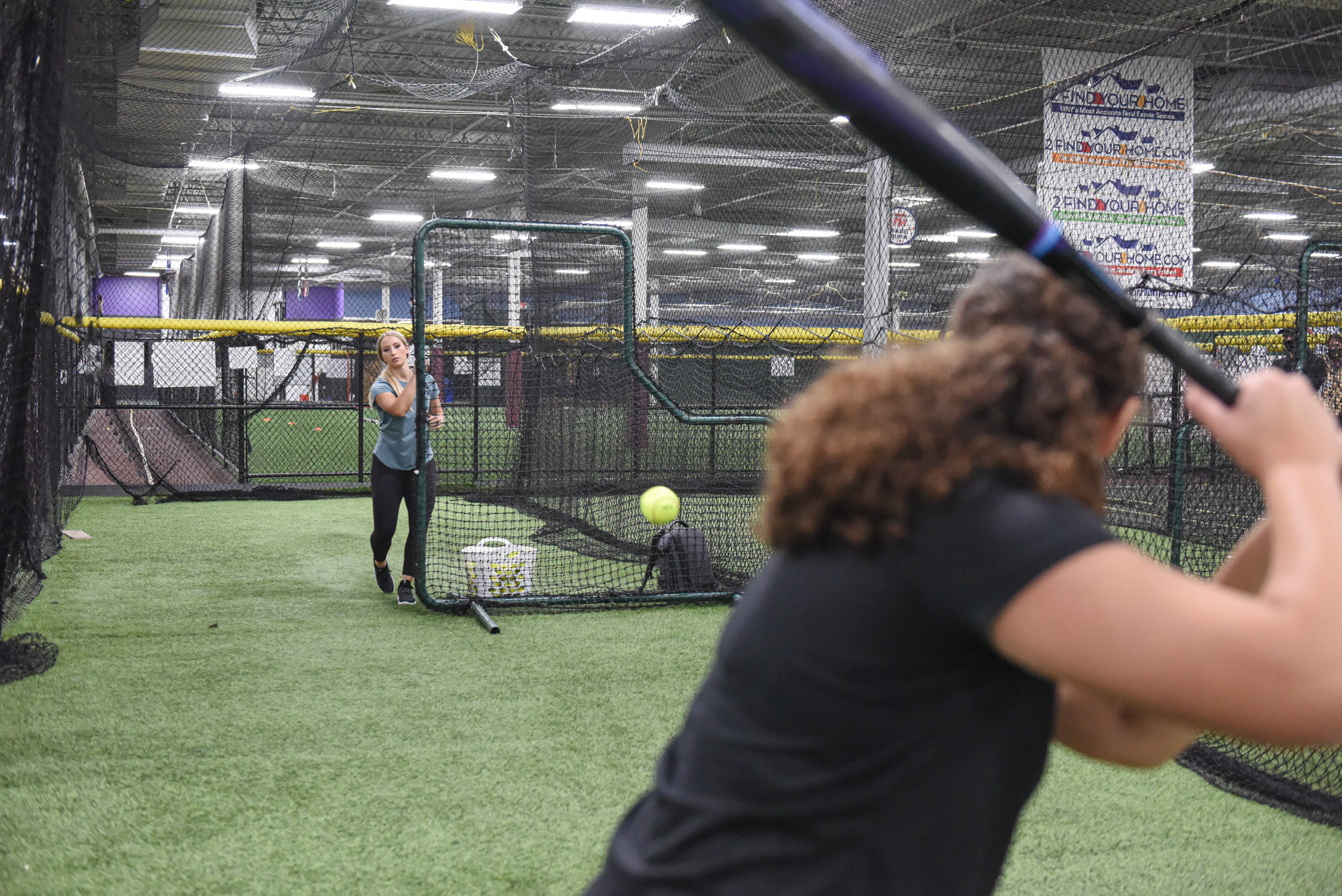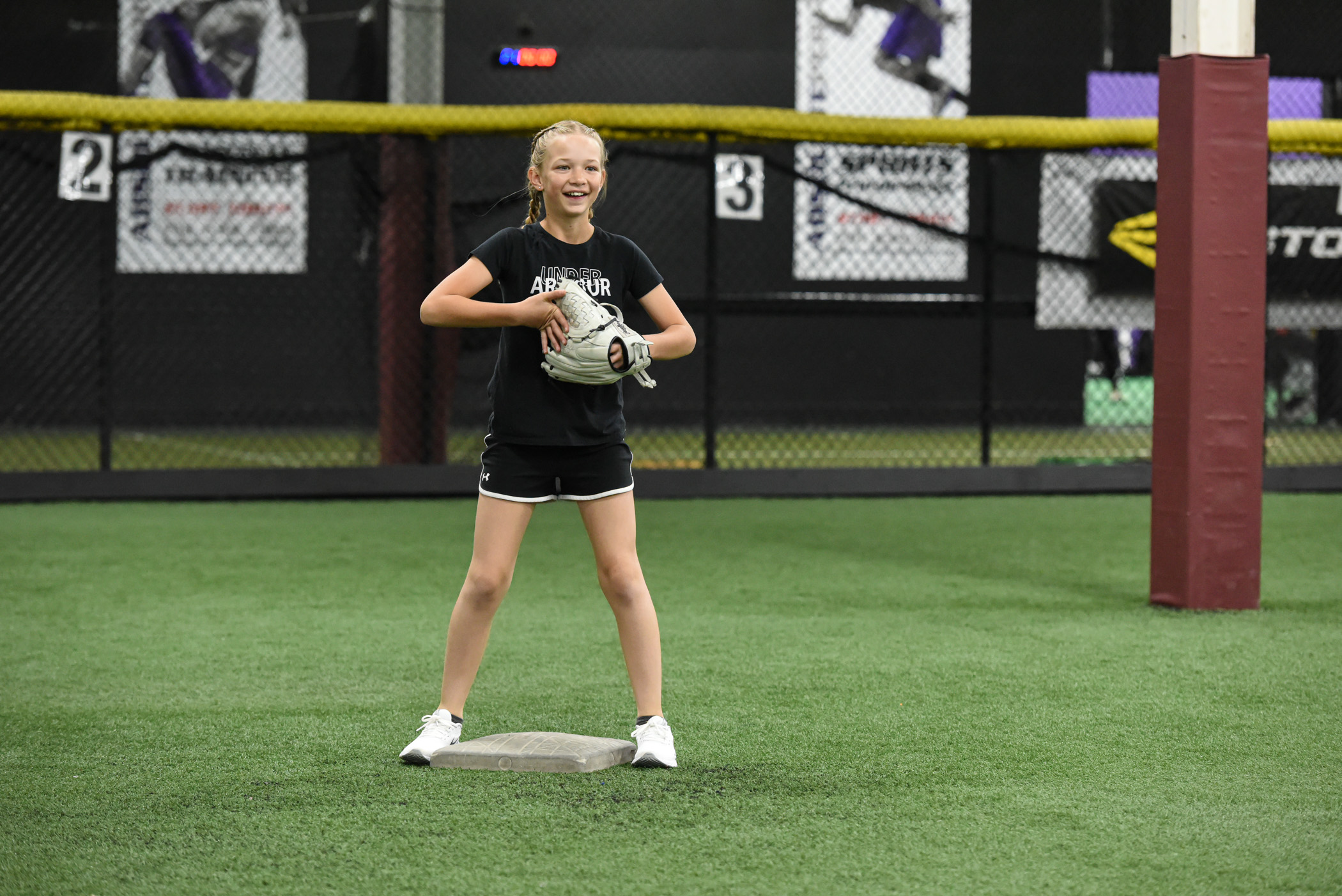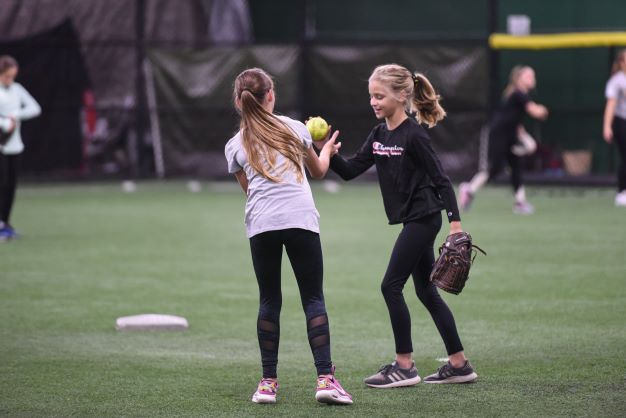Slumping is a VERY normal part of the game.
No matter if you are a player, coach, or parent reading this, I know that’s a hard pill to swallow.
Everyone, I mean EVERYONE will go through a slump at some point of their career.
Guess what? Softball is a game of failure. The best hitters only hit 3 out of 10 well and are still considered elite. That means that those hitters have failed 7 out of 10 times and are still considered top-tier. This is a hard mental hump to get over. I know, because probably just like your daughter, I am a perfectionist too.
Good hitters, coaches, and parents should all know the difference between good execution and a bad outcome AND a bad execution and a good outcome. For example, did you pick a good pitch and drive the ball to centerfield, but the centerfielder made a spectacular diving catch to get you out? It happens, But YOU did everything in your power to do YOUR job as a hitter.
Would you rather your hitter do their job, OR swing at a bad pitch, hit a weak grounder in between the 5-6 hole, and get on? Even though this is a good outcome, it was poor execution. I’ll always applaud the hitters who have good execution – even though their hits may not always drop.
When slumping, most hitters will try to hit EVERYTHING pitched to them because they are so desperate to get a hit – when in reality GOOD hitters are patient and have a SMALL strike zone and make the pitchers come to THEM – not the other way around. This is called being PATIENTLY AGGRESSIVE at the plate.
Good hitters control their strike zone and KNOW that they have more control in the box than most people think. If hitters are hitting line drives and hitting the ball WELL, eventually the ball will find holes. Keep your mindset the same and good things will eventually happen. I know this may seem like some Jedi mind tricks but hear me out. Everyone wants a million dollars right? If Person A is thinking ABOUT the money, but Person B is thinking about how to GET the money, you KNOW Person B is going to have more success actually earning that million dollars.
Seriously, I used to pray to the softball gods ‘please give me a line drive, please give me a line drive,’ but if they haven’t answered ME before, what makes you think they’ll answer you?!
Your mindset during your at bats, especially during pressure situations should be the exact same as the money example. Don’t think ABOUT the line drive, think about HOW TO GET your line drive. For example, I would tell myself ‘see contact, stay low, finish my swing, etc.’
HOW you talk to yourself matters too – If you’re telling yourself to NOT pull your head, you’re visualizing exactly what NOT to do… I promise you, you’re going to pull your head. Tell yourself what you WANT to do. ‘Head down, head down, head down’ etc and that is what your body will respond to.
They don’t write books upon books about how positive self talk can improve an athlete’s success if it doesn’t work. I have a secret for you. It actually does help.
I know as athletes, female athletes especially, we are so hard on ourselves. We expect so much out of ourselves and each and every at bat. The hitters who learn how to talk to themselves correctly are also learning from every at bat and are able to make quicker adjustments. I always tell my girls to visualize the last time they hit the ball the RIGHT way and focus on what felt GOOD, rather than be hyperfocused on what they’re doing wrong.
Remember that becoming an experienced softball player takes EXPERIENCE and sometimes that experience does include FAILING. Figuring out what DOESN’T work for you when slumping is sometimes just as important as learning what DOES.
Make sure you learn from your slump. For me – I learned that weekly hitting practice 2-3 times a week during the season was what helped me succeed and set me apart from others. I guess I wasn’t naturally gifted like some other hitters were – I needed to get the extra reps if I wanted to be good.
Tee work isn’t the most glamorous thing to do – I get it. But habits won’t be made or unmade in just games or with only front toss. Tee work can be done anywhere, can be done on your own, and can be an invaluable asset when done well and often. Do tee work consistently 2-3 times a week until you start seeing the results you want.
You can’t get upset at the results you didn’t get with the work you didn’t do.
For players who have hitting coaches – they aren’t at every single game or practice. My best piece of advice is to have someone take videos of your at bats, preferably from the 1st base side so we can see your hand path for right handed hitters. Send me the entire at bat, even if it’s a 2-3 minute strikeout or walk.
Believe it or not, I can tell A LOT – even if you get walked, Where and when are you picking up the ball? Are you seeing the ball all the way in? Is your setup correct? Are you loading on time? Etc.
If players get nervous if their parents are videoing them – have a different parent take the video. I promise your kid will never even know they did it. But most importantly, I can see what is and isn’t translating over from our lessons into your games – and I can address that the next time we see each other. If you don’t have game video, send me a video of her with at least 6-8 swings off the tee from the same frontside angle.
Keep me in the loop and help me help your daughters.
This may cause a stir, but I am going to say this anyway, I promised you unfiltered honesty remember? How parents talk TO their kids is a direct correlation to how those kids talk to THEMSELVES. Be conscious of what you’re saying and how you’re saying it. I KNOW all parents are only trying to help. If your daughter is struggling, instead of telling them to ‘don’t pull your head,’ remind them to ‘keep their head down.’ Simply keeping your reminders positive can have an absolute impact on their mindset on the diamond and to life in general someday.
Maybe one day instead of saying ‘this workout sucks,’ they’ll say ‘that workout was challenging!’
Make sure you tell your kid how proud of them you are no matter what their game performance was. They just want to know that you love them no matter if they went 0-3 or 3-3 at the plate that day.
I know it can be difficult to watch your child struggle. But always remember that the growth your kid will have from their temporary setback is so much more than just a few extra hits that day.
Learning how to deal with adversity will always make better softball players, better teammates, better students, and better people.
The lessons we learn from playing this game will always be more than just SOFTBALL.


